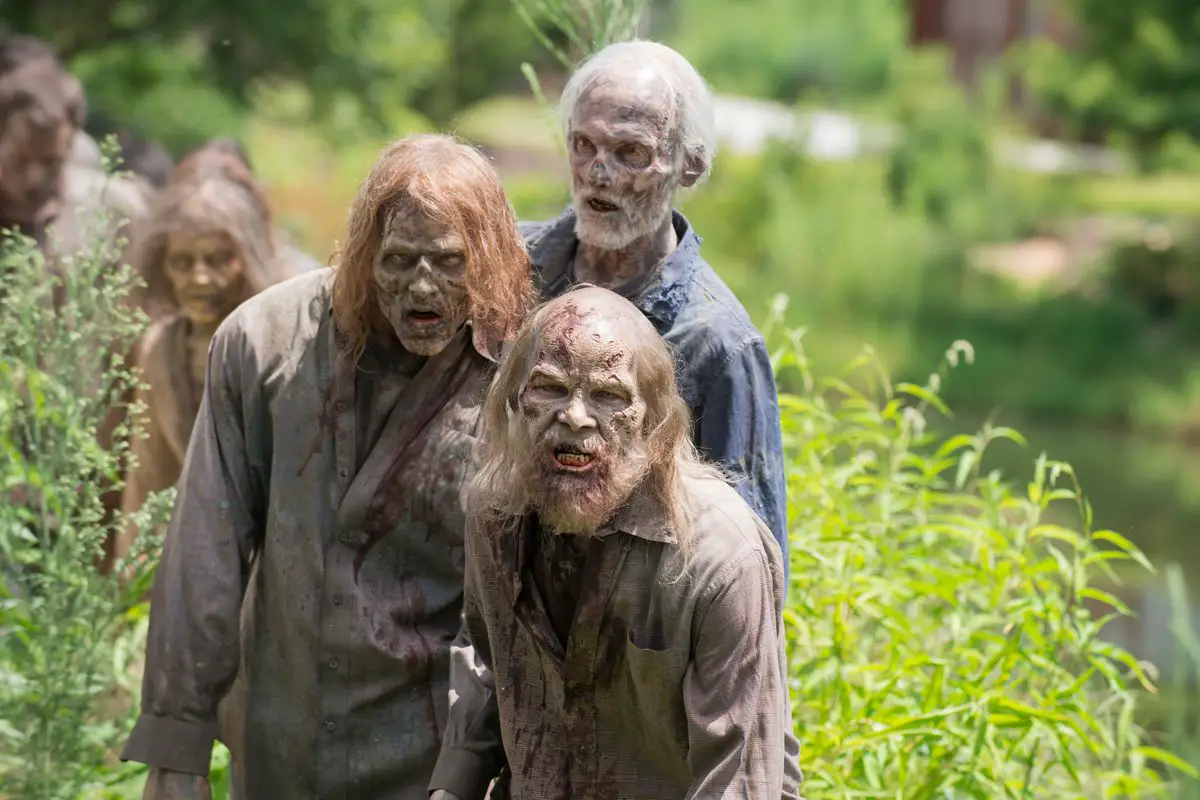What are your favorite aspects of horror movies and TV series? Do you like the chilling feeling that runs through you every time you see a walker in “The Walking Dead” suddenly appear behind a person and brutally bite them with a mixture of chewing and screaming sounds? How do these feelings impact you after the scene is over and everything returns to peace? What about how these sensations change your perception of the world around you?
As horror movies such as “It” peak at the box office, what elements do seemingly “unwanted” terrifying scenes contain that mesmerize people and draw them to an unsettling experience? I will try to explain based on my own experience and understanding.
Firstly, horror movies and TV series are able to capture our attention and make us live in the current moment. In an information-heavy world, individuals are oftentimes occupied by feelings of negativity that come directly from the media or indirectly from social media. It becomes harder for people to concentrate on the current moment as random thoughts or anxiety flood from all of these diverse pessimistic sources.
When one’s invariably peaceful life gradually becomes too calm, the need to interrupt the stillness and stimulate excitement becomes even more imperative. The frightening scenes in horror movies and TV series can awaken our alert system, trigger our “fight or flight” response and elevate our attention level for the sake of “survival.” When we see an overwhelming number of walkers in “The Walking Dead” hunting after a person breathlessly running away, we may not be able to occupy our brains with anything other than clenching our fists and becoming as nervous as the escaping victim.
According to psychology research, people are less happy when their minds are wandering when they are otherwise occupied. When our mind is running as fast as the desperate victim, no room is left for it to wander. You may ask, how could that be when the scene that occupies the audience’s minds is so scary? Well, based on my experience, we all realize these scenes are fake and we are safe. Also, the scary moments would just stop the moment we walk out of the movie theater or turn off the TV.
When people watch a horror film or TV show, all of the other noises in life are muted; afterward, the hedonic sensation of living in the moment may last or even be amplified by the subsequent relief we feel when we process the fact that these scenes are not real.
The second valuable sensation from watching horror scenes, I feel, is the replacement and relaxation of intense negative emotions, such as fear. We may all have things to be frightened of in our lives, big or small, ranging from worries about failing midterm exams to struggling with pessimistic thoughts about the future. Horror movies and TV series may not only help us — or at least me — clarify and crystalize the fear in our subconsciousness, but they may also channel this kind of negative feeling through our processing of the scary scenes.
Watching the entirety of a scary movie or show allows us to acknowledge, experience and finally relieve the fear that may occur while we’re viewing a piece of horror. It may lessen our avoidance of fearful feelings as well as motivate us to face and resolve them after completing this process. Let’s imagine how “fatally” fearful we may feel when we see the victim of a horror film unfortunately captured by a swarm of vampires and torn apart; afterward, however, this deadly fright is replaced by relief after we turn off the TV and know that all of these gory scenes are untrue.
As viewers, we get more familiar with fearful feelings by dedicatedly tackling, processing and finally getting over them. Watching horror movies and TV series may even make us cherish our sometimes-monotonous life more because they may motivate us to imagine hypothetical scenarios like “What if the normal living condition that we take for granted vanishes and turns into something horrible?” The process interrupts the “hedonic adaption” and makes us value our lives more.
Even with all the advantages mentioned above, I would still be cautious about my psychological changes while watching horror movies and TV series. The reason why I called myself a “semi-fan” of horror works is that though I enjoy the emotional roller coasters like many other viewers, sometimes it is hard for me to stop imagining the feelings of the victims in the horror movies — especially innocent ones. Even though I may realize all the scenes are fake and unrealistic, the associated negative feelings may still squeeze into my body and mind consciously or subconsciously.
When movie theaters darken, leaving only the light of the screen and the delicately designed sounds intended to arouse terror, viewers are often deeply drawn into the scene so they can empathize with the victims’ pain. This phenomenon, however, seems to be a double-edged sword — its charm originates from its approximation of reality, but it could also have deleterious effects on our mental health. When this happens, we might need to intentionally block these negative feelings.

















